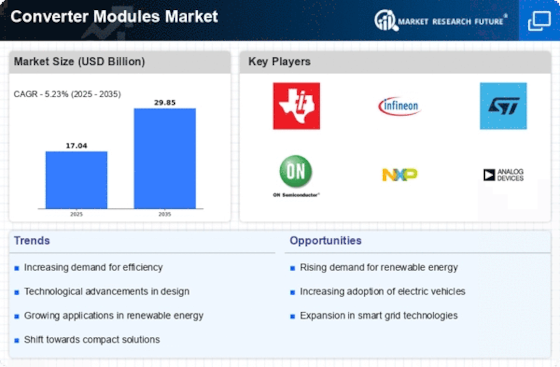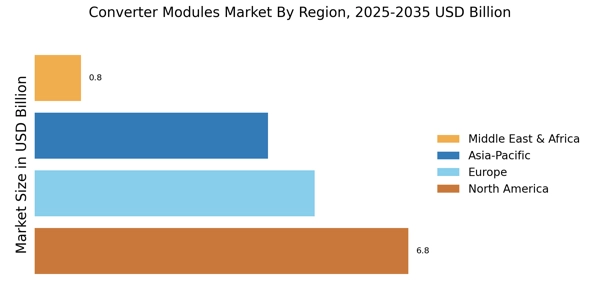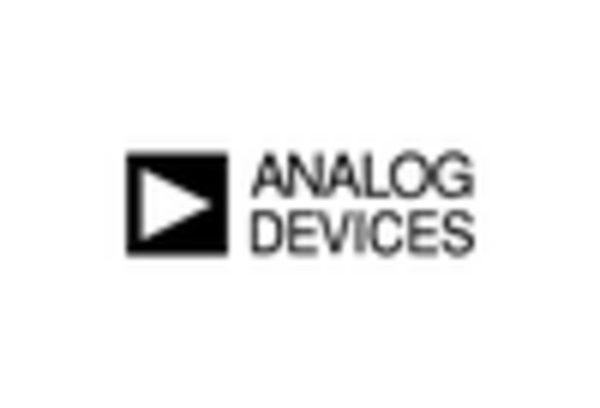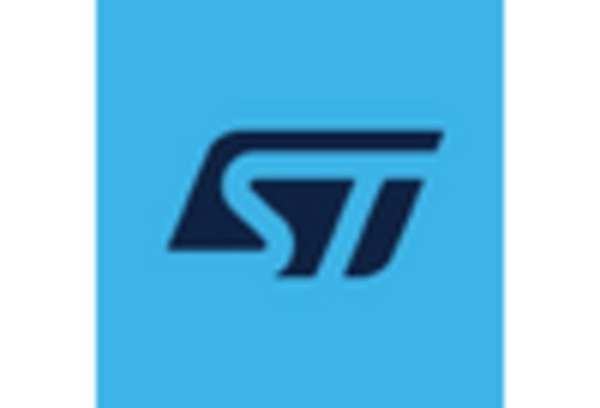Growth of Industrial Automation
The ongoing trend towards industrial automation is a key driver for the Converter Modules Market. As industries adopt advanced technologies such as robotics and IoT, the demand for reliable power conversion solutions is increasing. Converter modules are vital in ensuring that automated systems operate efficiently and effectively. The industrial automation market is projected to grow at a rate of approximately 10% annually, indicating a strong need for converter modules that can support various applications. This growth is likely to enhance the Converter Modules Market, as manufacturers seek to provide innovative solutions that meet the evolving needs of automated processes.
Emergence of Smart Grid Technologies
The development of smart grid technologies is reshaping the Converter Modules Market. Smart grids require sophisticated power management systems to enhance the reliability and efficiency of electricity distribution. Converter modules are critical in facilitating the integration of renewable energy sources and managing power flow within smart grids. The smart grid market is projected to grow significantly, with investments expected to reach hundreds of billions in the next decade. This growth indicates a rising demand for converter modules that can support the complex requirements of smart grid systems. Consequently, the Converter Modules Market is likely to benefit from the increasing adoption of smart grid technologies.
Increased Focus on Energy Efficiency
The growing awareness of energy efficiency is influencing the Converter Modules Market. Organizations across various sectors are prioritizing energy-saving technologies to reduce operational costs and environmental impact. Converter modules are essential components in achieving energy efficiency, as they optimize power conversion and minimize losses. Recent studies suggest that energy-efficient technologies can lead to savings of up to 30% in energy consumption. This trend is likely to drive demand for advanced converter modules that offer superior performance and reliability. As a result, the Converter Modules Market is expected to expand as businesses invest in energy-efficient solutions.
Advancements in Electric Vehicle Technology
The surge in electric vehicle (EV) adoption is significantly impacting the Converter Modules Market. As automotive manufacturers increasingly invest in EV technology, the need for efficient power conversion systems becomes paramount. Converter modules are integral to the operation of EVs, facilitating the conversion of battery power to drive electric motors. The electric vehicle market is anticipated to expand rapidly, with projections indicating a potential increase in sales by over 20 million units annually by 2030. This trend suggests a robust demand for high-performance converter modules, which are essential for enhancing the efficiency and performance of electric vehicles. Thus, the Converter Modules Market is poised for growth as the automotive sector transitions towards electrification.
Rising Demand for Renewable Energy Solutions
The increasing emphasis on renewable energy sources is driving the Converter Modules Market. As nations strive to reduce carbon emissions, the integration of solar and wind energy systems is becoming more prevalent. Converter modules play a crucial role in converting the generated energy into usable forms, thus facilitating the transition to cleaner energy. According to recent data, the renewable energy sector is projected to grow at a compound annual growth rate of over 8% in the coming years. This growth is likely to spur demand for efficient converter modules, which are essential for optimizing energy conversion processes. Consequently, the Converter Modules Market is expected to witness substantial growth as more projects focusing on renewable energy are initiated.














